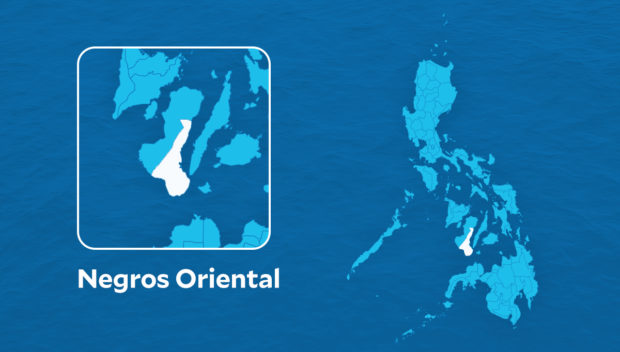
DUMAGUETE CITY — The Commission on Elections (Comelec) heard mixed reactions on the proposed postponement of the Barangay and Sangguniang Kabataan Elections (BSKE) in Negros Oriental.
Comelec Chairman George Garcia led the three-day public hearing that started on June 27, in the different localities in the province.
All the sentiments and position papers would be consolidated and sent to the Comelec en banc which would determine if there is basis to postpone the BSKE set this Oct. 30.
“The Comelec en banc are here not to tell you that the elections will be postponed or will push through. We are here to listen to everybody,” said Garcia in a conference with other government agencies on Tuesday.
Garcia said the Comelec may release the en banc’s decision by the last week of September or first week of October 2023.
“We are not rushing things out here. We want to see developments in the coming days,” he said.
Aside from the Comelec, the public consultations were also attended by officials of the local governments, police and military, election watchdogs, and other election stakeholders.
Mayor Janice Degamo of Pamplona town, the widow of slain governor Roel Degamo, led a group of mayors in pushing for the postponement of the BSKE in the province for a month.
In a joint statement, nine mayors cited security-related concerns and “deep-rooted fear” among residents after the murder of governor Degamo on March 4.
“Postponing the elections will allow us time to address the fear and hesitation that undermines the electoral process in Negros Oriental. It will provide us an opportunity to dismantle the culture of fear, instill confidence among the voters and ensure a truly free and fair electoral environment,” they said.
The one-month delay, they said, would give them time and space to establish a foundation of trust and security, and pave the way for a more genuine and meaningful democratic experience.
“The history of prior harassment, killings, and acts of intimidation has instilled deep-rooted fear among the voters in Negros Oriental, making them hesitant to stand against the powerful political machinery and the accompanying harassment tactics,” the local chief executives said.
Degamo was attending to the needs of his constituents inside his residential compound in Pamplona town when armed men went inside and fired at the governor last March 4. Nine other persons died.
Police arrested 11 suspects who earlier linked suspended Negros Oriental Rep. Arnolfo “Arnie” Teves Jr. to the killing of Degamo. Many suspects, however, recanted their confessions after they were provided with lawyers.
Teves, who is still outside the country, repeatedly denied the accusations. Last March 22, the House of Representatives voted to suspend Arnolfo for 60 days for his continued absence despite an expired travel authority.
The nine mayors of Negros Oriental said postponing the elections would also allow an opportunity to fully mobilize the national government, including the Comelec, Armed Forces of the Philippines, and the Philippine National Police.
“By dedicating resources and expertise to reassess and fortify security protocols, we can effectively mitigate risks and create a safe and secure environment for candidates, voters, and election personnel,” the mayors said.
“This comprehensive approach will instill confidence in our constituents, ensuring they can exercise their fundamental right to vote without intimidation,” they added.
Among the mayors who sought the postponement of the BSKE in Negros Oriental were Degamo’s widow Janice of Pamplona, Fritz Diaz of Siaton, Felipe Remollo of Dumaguete City, Galicano Truita of Dauin, Mel Nick Logronio of San Jose, Eniego Jabagat of Bindoy, Dennis Amancio of Ayungon, Filomeno Reyes of Guihulngan City, and Susano Ruperto of Tayasan.
Fred Magallano of the Diocesan Electoral Board shared the same sentiments.
“We agree with the postponement of the elections for at least 30 days. We want the people to feel free and safe during the election” he said.
Magallano stressed that the board’s stand has nothing to do with politics.
While there were those pushing for the postponement of the BSKE in Negros Oriental, some officials also asked the Comelec to hold the elections on Oct. 30, the day when other parts of the country will choose their new village and youth officials.
Edward Du, president of the Negros Oriental Chamber of Commerce and Industry, expressed fears that the postponement of the BSKE would affect local businesses and tourism in the province.
“We are against the postponement of the elections because it would have an effect on our economy,” he said.
“But we will depend on the recommendation of our law enforcement agencies and the local peace and order councils. If they say that Negros Oriental is peaceful, we should believe them because they have all the intelligence data and other information on whether or not there are brewing insurrection or rebellion,” he added.
The Omnibus Election Code allows the postponement of elections on the ground of violence, terrorism, loss or destruction of election paraphernalia or records, force majeure, or other analogous causes of such nature that makes impossible the holding of a free, orderly, and honest election.
Aside from Garcia, the other national government officials who flew to Dumaguete City on the first day of the public hearing were Comelec commissioners Ernesto Maceda Jr., Rey Bulay, Nelson Celis, and Aimee Ferolino, Armed Forces of the Philippines chief Andres Centino, and Philippine National Police chief Benjamin Acorda.
READ:
Comelec to purge double or multiple registrations for 2023 BSKE
Comelec to begin BSKE Mall Voting simulations on July 15
lzb